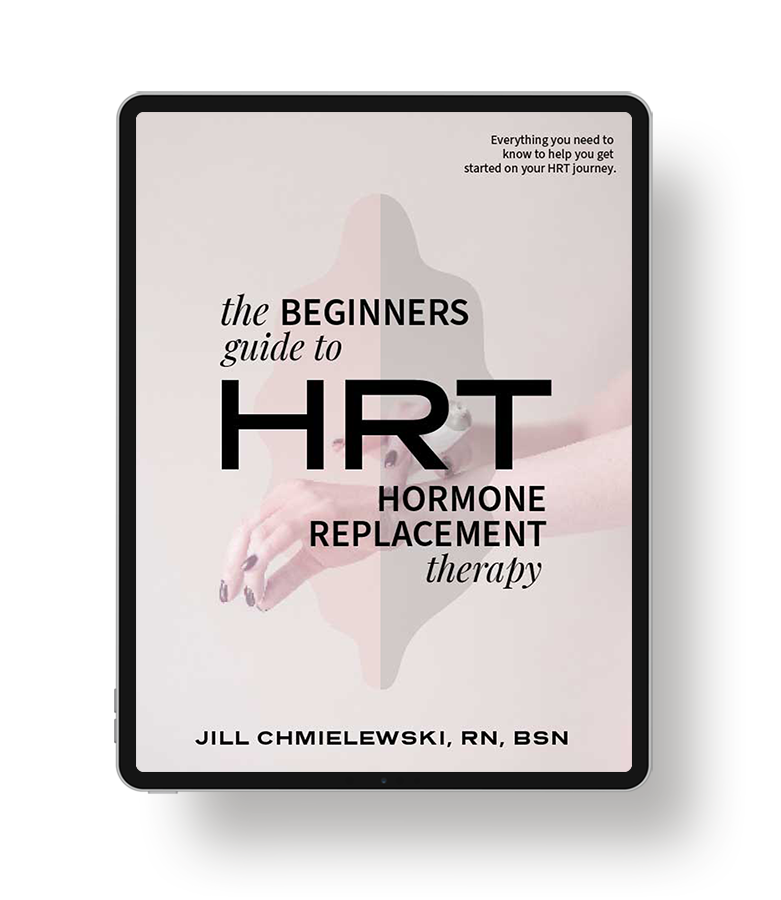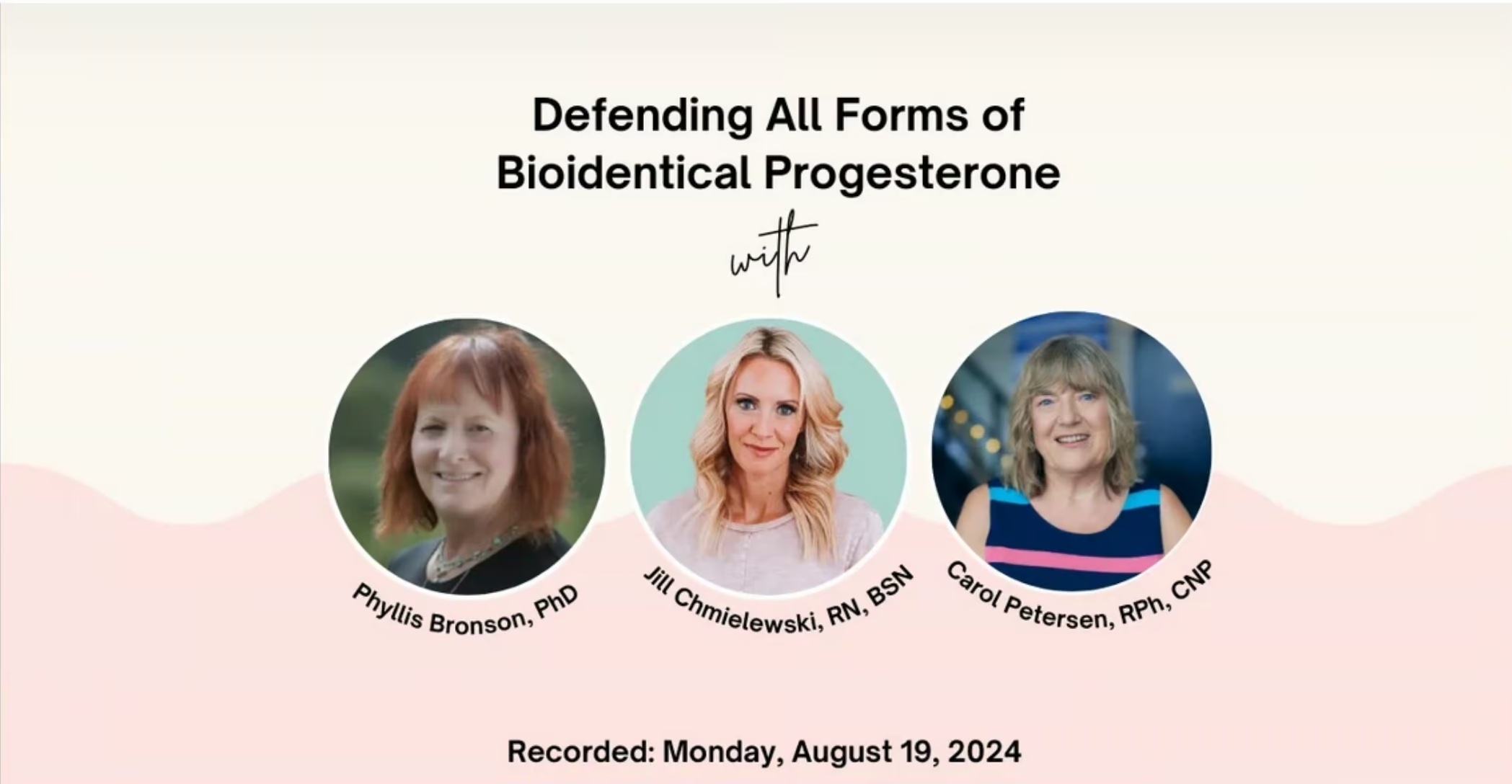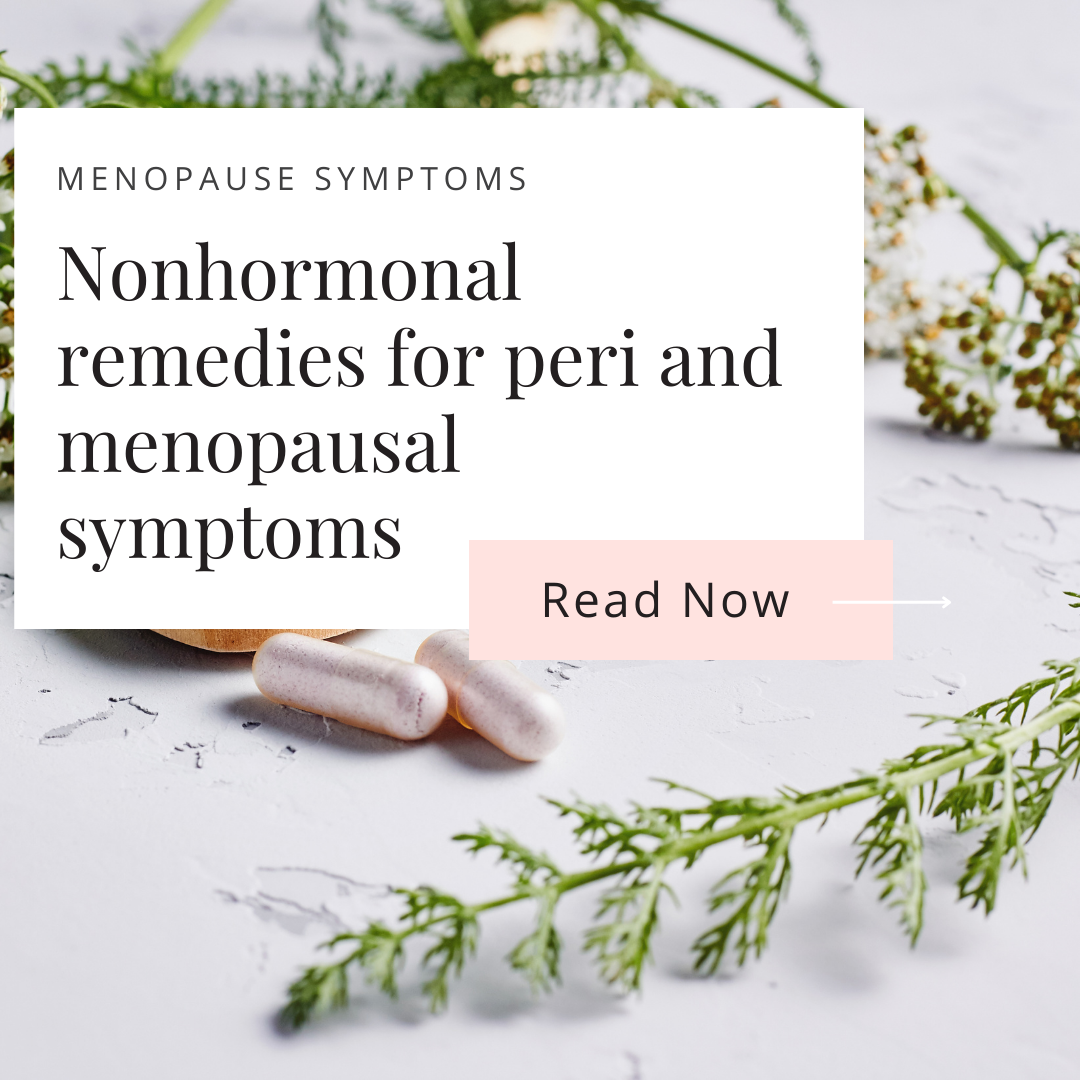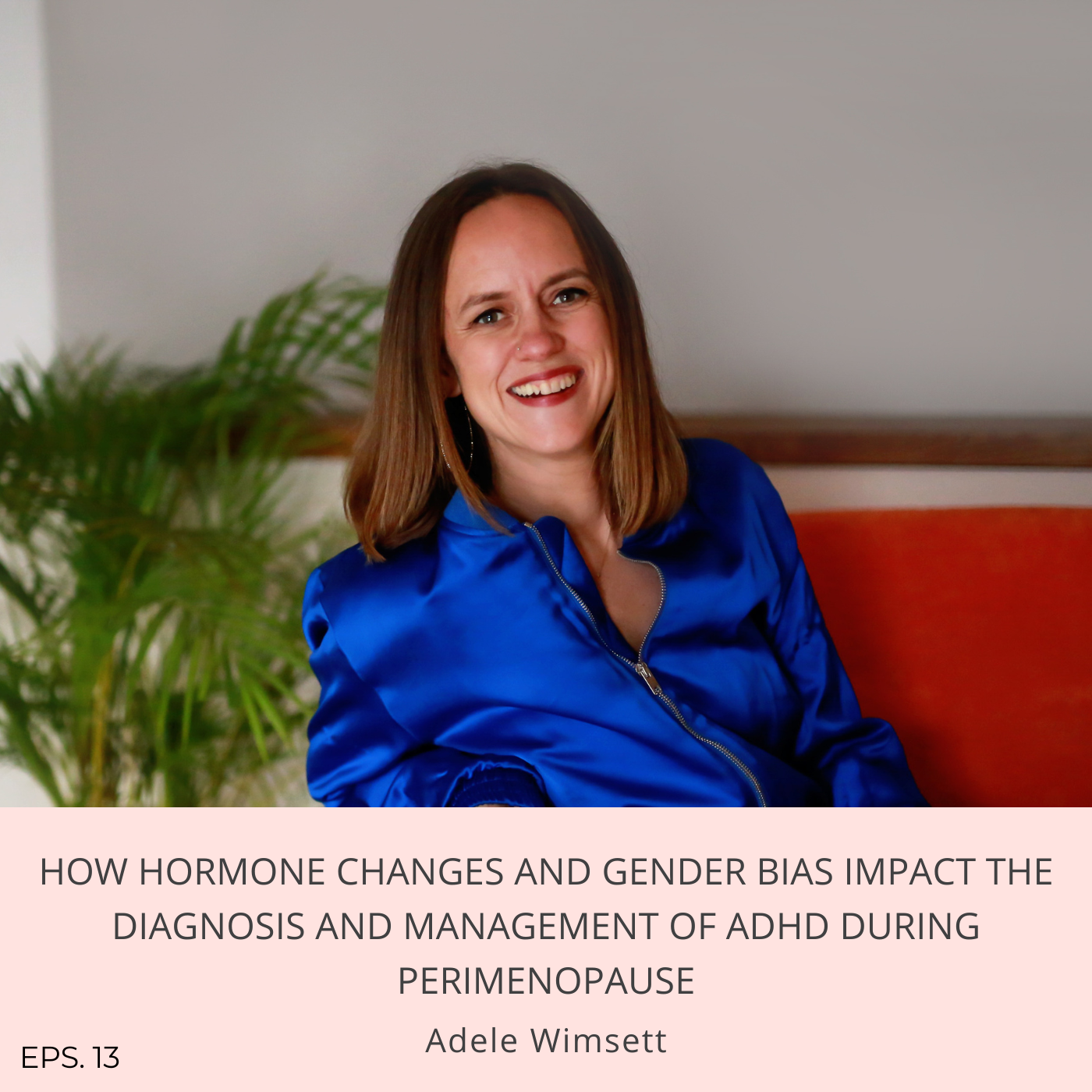I am in perimenopause.
There, I said it.
It’s a word that isn’t often used among us ladies. We tend to focus on either the reproductive years or menopause itself, but the period in between is often neglected. And in my opinion, it’s one of the most important periods of our life.
I recently had a conversation with a 37-year-old prospective client who was sharing her challenges: Increased anxiety and depression, mood swings, wonky periods, weight gain in the midsection despite a healthy diet and exercise, and insomnia prior to her period.
“Check, check, check,” I was thinking ~ welcome to perimenopause in all of its glory.

Most women I talk to have either NO idea that perimenopause exists or they think it refers to the three or four months prior to menopause.
In reality, perimenopause is the time leading up to menopause and can begin five to fifteen years before the onset of menopause.
Since the average age of menopause (the absence of a menstrual period for one year) is around age 51, perimenopause can begin as early as age 35 in some women. That probably doesn’t sound right to many of you, given the fact that many women in their mid 30’s are just beginning to start a family, but the hormonal changes can and do begin in the mid 30’s for many of us women.
Considering the fact that I am 47 years old, and most of my clients are women between the ages of 35 and 55, I am deeply in tune with the challenges that come along with perimenopause.
One keen observation I’ve noted is this: The way you care for your body in your 20’s and 30’s directly impacts the health of your body during perimenopause and beyond.
The classic symptoms of perimenopause include night sweats, weight gain (especially in the midsection), sleep disruption, vaginal dryness, heavier periods, worsening PMS, shorter or longer menstrual cycles, mood swings, fatigue, memory or focus issues, anxiety, depression, droopy breasts, and achy joints.
And if that wasn’t bad enough, most of my perimenopausal clients happen to be parenting teenagers going through puberty (I can personally relate to this one), making this period of time particularly challenging to say the least. Sounds pretty awesome huh?
Well, before you curse this next chapter of your life, I want to share some things that have been particularly helpful for me and my clients as we navigate this interesting time of life.
1. Ditch hormonal birth control in perimenopause
Your doctor may tell you that you will have a much easier time getting through perimenopause if you just stay on hormonal birth control until you hit menopause. This advice is disastrous (truly) because hormonal birth control actually causes chemical menopause (so essentially you are going through menopause while on hormonal birth control).
Hormonal birth control completely flatlines your own hormones which are powerful chemical messengers needed for overall health and vitality. Yep, contrary to what you may have been told, we need estrogen, progesterone, and testosterone (in the right balance) for overall health and vitality. If we didn’t need hormones, then why would our body bother making them?
Our sex hormones are not just for reproductive health ~ they work in concert with the other hormones in our body to provide us with energy, vitality, brain health, strong skin and bones, optimal sexual health, a healthy vaginal microbiome, mood stability, and more.
If you need to use a form of birth control, then consider some of the other safer contraception options instead of hormonal birth control (i.e. the Fertility Awareness Method, condoms, a vasectomy for your fella, the copper IUD).
And if you are worried about coming off birth control because you had wonky periods before starting hormonal birth control then talk with an expert who can help you get to the root cause of your period problems.
2. Get your hormones tested during perimenopause
Ask your doctor to start with some basic labs (e.g. CBC, metabolic panel, lipid panel, vitamin D, fasting insulin, hemoglobin A1c) and always interpret your labs using optimal ranges (the standard U.S. labs use reference ranges which is NOT an indicator of optimal healthy ranges).
Work with a functional practitioner to look at your sex hormone levels. One of my favorite tests is the DUTCH panel by Precision Analytics, which looks at sex and stress hormones and their metabolites, along with a few other hormones and neurotransmitters. Knowing your numbers can help you to identify opportunities for improvement, setting the stage for a much easier transition into perimenopause.
3. Reduce stress during perimenopause
Okay, I know you are going to say that there is no way you can make headway on this one, but before you skip over this, I urge you to read on. I am a working mom of four teenagers, so if I can reduce stress, you can too!
There is one stress response. Our bods go from zero to ten with each and every stress response whether it be the stress of running for your life or the stress from a work deadline. There’s no in between. Just one stress response.
As women, we are pleasers and givers. We put everyone and everything before ourselves, putting our own needs on the back burner or the “someday” list. And that need to please and give is what most often leads to a feeling of overcommitment and feeling stretched too thin.
There is no award or badge of honor for being the most stressed, and stress does some nasty things to our precious perimenopausal bods.
First, living in a state of chronic stress means that our adrenal glands (the two walnut-shaped glands that sit atop the kidneys ) crank out stress hormones all day long to keep up with our modern day way of living.
Chronically elevated levels of stress hormones like cortisol are pro-inflammatory in the body which can leave our body in a state of chronic inflammation. Chronically elevated cortisol also ensures that our blood sugar remains high, which means that insulin will remain high too. Translation ~ We can’t lose weight. Weight gain is inevitable if we don’t dial back on the stress.
Second, the bulk of our sex hormones (think estrogen and progesterone) are primarily made in the ovaries throughout the reproductive years. But as we begin the transition through perimenopause, the ovaries kick out fewer sex hormones, and our adrenal glands take on the task of sex hormone production.
If you are stressed all the time, the adrenal glands are going to be more concerned with supporting you through the stress, so they will effectively shut down their production of sex hormones and focus on stress hormone production only. It’s a primal response from many years ago to ensure that during times of stress the body wouldn’t get pregnant ~ I mean why would you bring a baby into the world when you are in danger? It makes perfect sense.
Plain and simple ~ you’ve got to reduce stress if you want balanced hormones during perimenopause.
4. Reduce your exposure to toxins
It might surprise you to know that there are over 80,000 chemicals registered with the Environmental Protection Agency (EPA), with about 1,500 to 2,000 new chemicals added each year. That’s a lot of chemicals, which means a lot of opportunity for toxin exposure throughout our daily life.
It may not seem obvious, but toxins are found everywhere, including:
- The food we eat – chemicals, additives, artificial colors and flavors, preservatives, hormones, pesticides, herbicides, sugar
-
- The drinks we drink – caffeine, alcohol, sugar, artificial colors
- In our lotions, shampoos, deodorant, make-up and perfumes
- In the air we breathe
- In our home environment – chemicals, cookware, food storage containers, fragrances, cleaning solutions, air fresheners, pressboard furniture, carpeting, paint, building materials
- Infections – Certain viruses such as EBV (Epstein Barr Virus, the virus that causes mono) is particularly hard on the liver
- Medications – Most medications are metabolized (broken down) in the liver
Here’s the deal: For the most part, if the everyday toxins are in the body for a short time, they are unlikely to do harm; but if they are in the body for a long time or there is an accumulation of toxins over time, they can potentially cause significant harm. And the problem is that we do not necessarily know which toxin or how much of any one toxin (or an accumulation of toxins) tips the scale away from our favor, so our best bet is to try and reduce our overall toxin exposure as much as possible.
The effects of years of toxin exposure can be a major source of chronic inflammation and hormone imbalances, which hits us hard during the perimenopausal years. Reducing toxin exposure now can do wonders to prevent unwanted toxin accumulation and damage in the body that so often exacerbates perimenopausal symptoms.
5. Eat real food & take supplements if needed
What we put into our body has a direct impact on our overall health. Period.
Dr. Libby Weaver, a leading nutritional biochemist, and seven-time number one bestselling author says that “The way you eat is the most basic way you demonstrate care for yourself. There is nothing in this world that replaces a highly nourishing way of eating. There is nothing that can burn off a lousy way of eating”, and I agree.
Most of us aren’t taught to eat for our health; rather we learned to eat three meals a day, and to eat until we were full.
We learned that any food would do…..boxed food, takeout, food laden with chemicals, pesticides, and toxins.
We learned to eat everything on our plate, to eat in a hurry, to douse our food with salt, and to smother our food with condiments.
Most of us get more than half of our daily calories from processed foods devoid of nutrients, and often full of chemicals, so it’s no wonder that we feel so lousy; those 50 trillion cells are lacking the nutrients they need for optimal health!
Our bodies are amazing and they can bounce back from a junk food assault here and there, but day after day, month after month, and year after year, and we’ve got a problem.
Unfortunately, I often find that perimenopause takes a direct hit if a woman has been eating a nutrient poor diet in the preceding years. The body simply doesn’t have a built-in pantry of nutrients, so it’s imperative to take steps toward a real food way of eating ASAP. You might be surprised to find that the body will heal if given the raw materials it needs to function well.
That said, there are some basic nutrients that my clients often need more of during the perimenopausal years, and we often turn to supplements to accomplish this. Vitamin D, Magnesium, Zinc, Omega 3 Fish oil and methylated B vitamins are needed most often, but it’s always a good idea to get a baseline level of your nutrients to see where things stand.
I want to hear from you.
What do you find most challenging about the perimenopausal years?
Any advice to help other women sail through perimenopause with ease?





